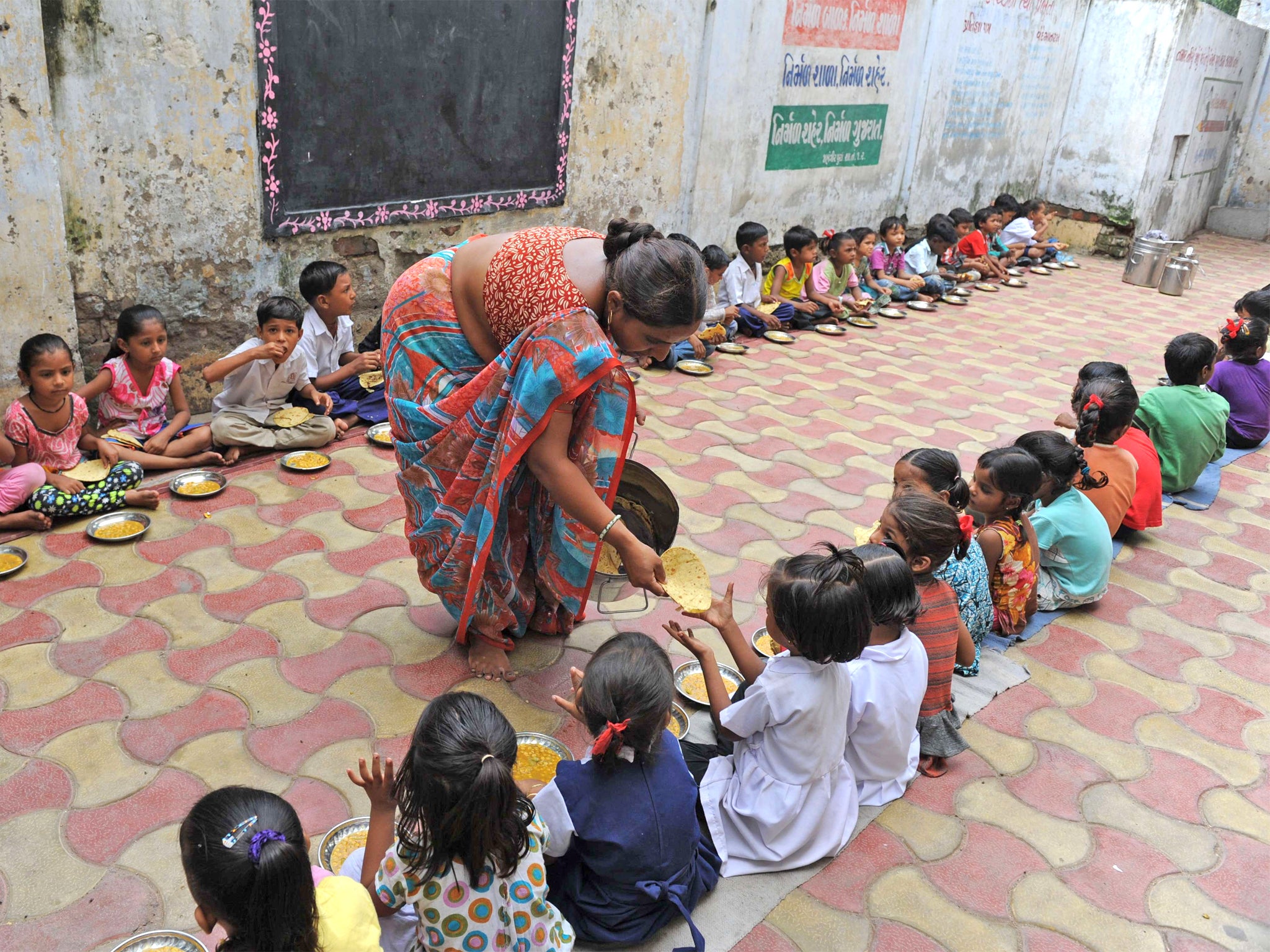Indian government’s flagship free school meal scheme: Worthy in its aspirations, but plagued by a string of scandals

The midday meals scheme is one of the Indian government’s flagship anti-poverty programmes, designed to provide at least one nutritious meal a day for the children of the nation’s poorest families. The Indian government says it reaches about 120 million children across the country.
But the scheme has faced criticism over the quality of the food provided and standards of hygiene. There have also been allegations of corruption, with food intended for children disappearing and then being sold on the black market.
Oxfam’s programmes and advocacy director Shaik Anwar said Bihar was not the only state that had shown little concern for improving the free school meal scheme, despite many previous warnings from civil society organisations and right-to-food commissioners.
In April this year a 13-year-old girl died in Aswara, near Ahmedabad in the north west, and 10 others were taken ill after eating the midday meal at a government school. A dirty water tank was believed to be the cause of the contamination.
A year earlier 132 children were admitted to hospital after eating the midday meal at a school in Parvati near Pune in western India. Idlis (savoury cakes) prepared in unhygienic conditions were blamed. A couple of months earlier 50 children at a school in Mangalore in the south-west were taken to hospital after eating the midday meal. And 72 children were taken ill after eating a meal at a school in Surat in the north-west in 2010.
The India Today website cited other examples of problems with the quality of the meals. It reported that dead lizards, frogs, insects and a rat had all been found in food provided under the midday meal scheme.
The scheme was first introduced in southern India, where it was seen as an incentive for poor parents to send their children to school. Since then the programme has been replicated across the country. It is part of an effort to address concerns about malnutrition, from which the government says nearly half of all Indian children suffer.
Join our commenting forum
Join thought-provoking conversations, follow other Independent readers and see their replies
Comments
Bookmark popover
Removed from bookmarks